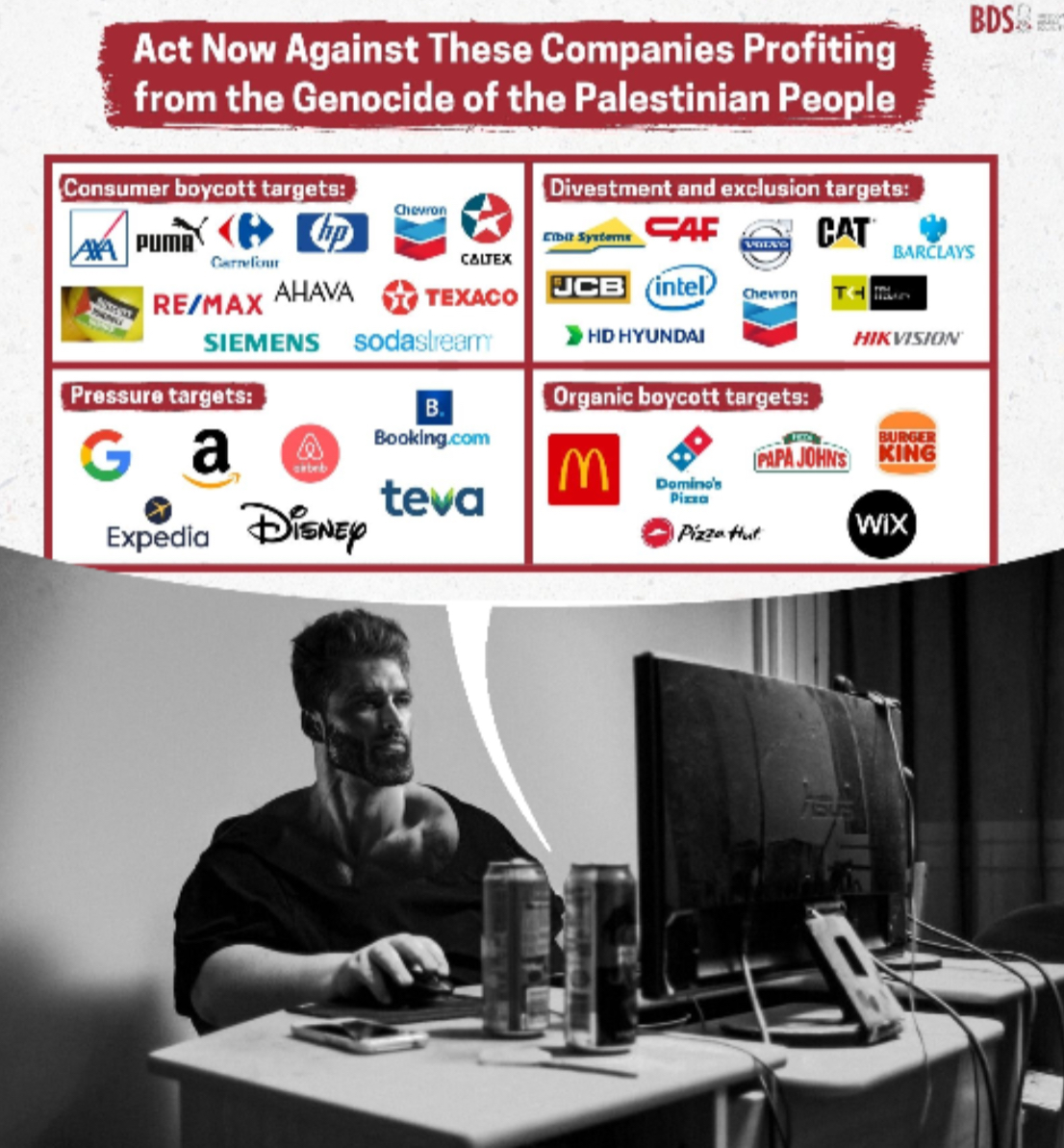click for explanation of what the four categories are
We must strategically focus on a relatively smaller number of carefully selected companies and products for maximum impact.
Many of the prohibitively long lists going viral on social media do the exact opposite of this strategic and impactful approach.
We have split these targets into four sections:
1. Consumer boycott targets - The BDS movement calls for a complete boycott of these brands carefully selected due to the company's proven record of complicity in Israeli apartheid.
2. Divestment and exclusion targets - The BDS movement works to pressure governments, institutions, investment funds, city councils, etc. to exclude from procurement contracts and investments and to divest from, as the case may be, as many complicit companies as practical, especially arms companies and banks. We rely on the following authoritative sources:
-
AFSC list of companies that have provided Israel with weapons and other military equipment used in its #GazaGenocide.
-
AFSC Investigate database of companies enabling the occupation.
-
UN database of businesses involved in Israel’s illegal settlement enterprise.
-
WhoProfits database of Israeli and international corporations profiting from the ongoing Israeli occupation.
-
Don’t Buy Into Occupation list of businesses involved in the illegal Israeli settlement enterprise in the OPT in which European financial institutions have investments.
3. Pressure targets - The BDS movement actively calls for pressure campaigns against these targets. This includes boycotts when reasonable alternatives exist, as well as lobbying, peaceful disruptions, and social media pressure.
4. Organic boycott targets - The BDS movement did not initiate these grassroots boycott campaigns but supports them due to these brands’ complicity in Israel’s genocide and apartheid against Palestinians.

What if instead of a bunch of companies all at once, we just got a few million people to join a "strategic boycott club" or whatever we'd call it, and just go one company at a time, just for a month... Like, okay June 1st 100 million Americans say they are going to not buy anything from McDonald's for a month unless McDonald's immediately does xyz... I bet just the threat would tank their stocks. It's easier for the average person to just think about and execute on one thing at a time. Then once McDonald's gets the message, move on to the next company
that’s certainly a thought.
as a non-expert, my understanding is that the list posted here is one aiming to strike a meaningful balance between brevity and breadth across industries. from the linked article:
be sure to read through the linked article for a full breakdown of how it defines its strategy for maximizing effectiveness and each individual target.